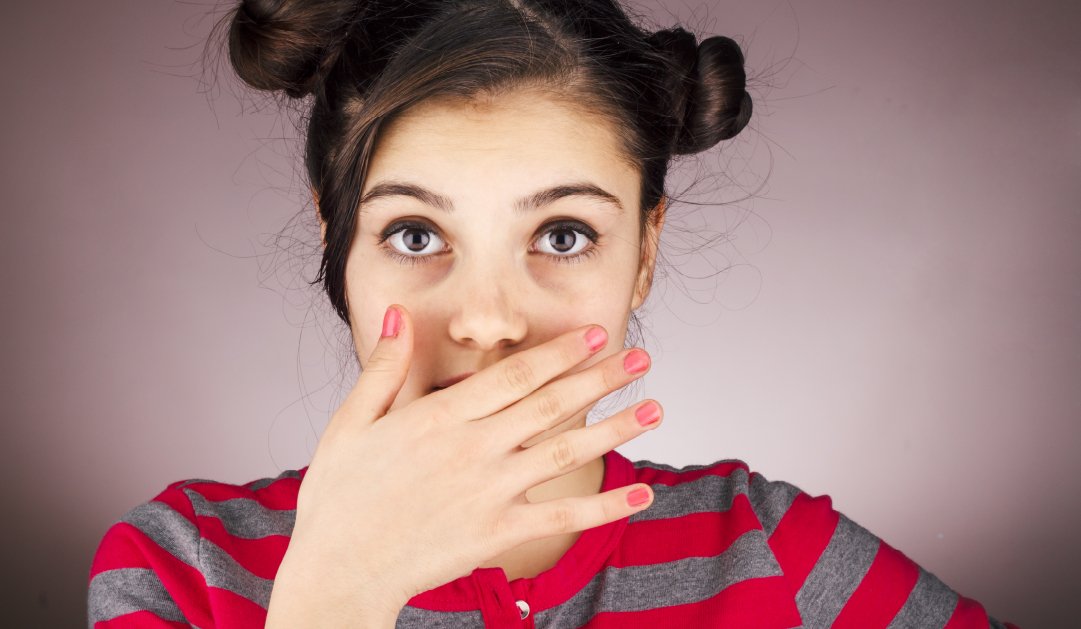Five Ways To Banish Bad Breath.
Making an impactful first impression on someone new is usually a good thing, but not if it’s for the wrong reason! Bad breath is something that can affect anyone, but luckily there are plenty of easy ways to prevent and treat it.
When you’re new to braces, it can take time to adjust to a new oral hygiene routine. This can lead to food particles getting stuck in and around the braces or between your teeth, causing more bacteria in the mouth and a smelly breath.
The correct term for bad breath is halitosis and, for some, it can cause embarrassment, anxiety, lack of confidence and have a massive impact on their social life. Some people suffer in silence for years, too ashamed to seek treatment, while others may only speak to their dentist about it when someone has mentioned the problem. Either way, it’s nothing to be worried about.
Most of the time bad breath is caused by gases from bacteria in the mouth, so a tip-top dental hygiene routine can often see it off. Other causes include sinus problems, colds, smoking, and – much more rarely – chronic illnesses such as diabetes, kidney failure and lung disease. Of course, if you think your problem is more serious than just bad breath, see your GP.
Poor dental hygiene and gum disease is the most common cause, which is an easy fix in most cases, especially if you wear braces. Here’s our top tips to combat bad breath:
1. Drink plenty of water
A dry mouth makes a perfect breeding ground for bacteria, so drink plenty of water to increase your production of saliva and keep your body hydrated. Saliva helps to cleanse your mouth and can remove food particles and bacteria. ‘Morning breath’ is also caused by a dry mouth, so keep a glass of water handy by your bed.
2. Improve your dental hygiene
This is a simple fix, and is very effective in combating bad breath. Make sure you have a thorough cleaning routine, especially if you wear braces or aligners. Floss between your teeth (yes, you can do this with braces!), then brush for the correct amount of time. Gently brush your tongue, too, or use a tongue scraper, as the tongue harbours lots of bacteria, which can smell if left untreated.
3. Eat the right foods
Steer clear of pungent foods such as garlic, onions and spices. As they break down in the body, the chemicals from these foods enter your bloodstream and are carried to your lungs, which affect your breath. The only thing to do here is sit it out, unfortunately!
4. Try a mouthwash
Using a mouthwash at a different time to brushing, for example after lunch or at least an hour before or after brushing will kill germs and bacteria that might still be lurking in those hard-to-reach places between your teeth. There are lots of different types on the market, so find one that works for you.
5. See your dentist
Schedule a check-up every six to twelve months so that your dentist can check for cavities and gum disease, which can cause bad breath. The dental hygienist can give your teeth a thorough clean and remove plaque and tartar, which is especially important if you are having braces fitted.
If you need to know more, or are having problems with bad breath, our team is on hand to answer your questions – just give us a call on 01245 46 3000.

